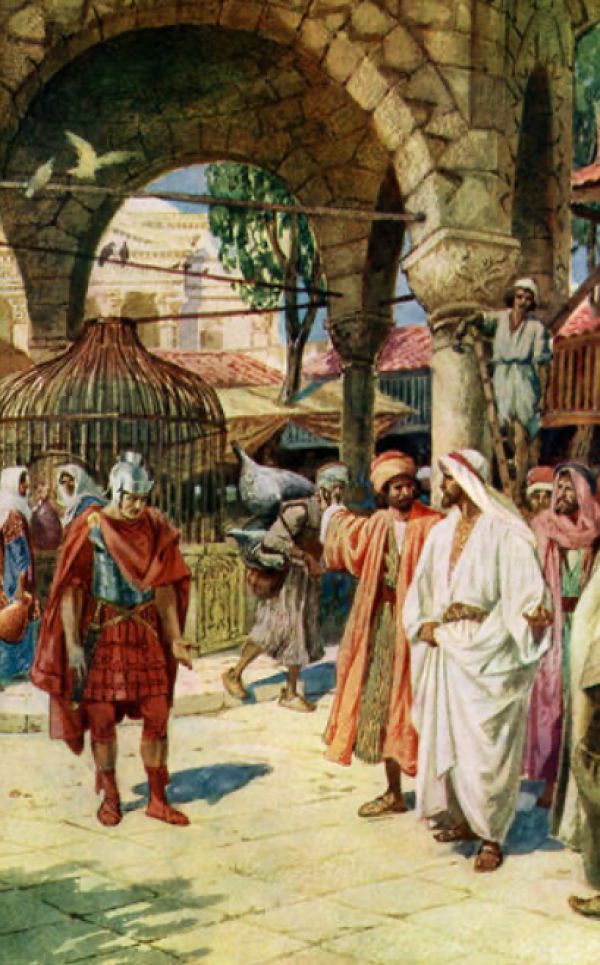Personal Faith, Word-event
(Lk 7:1-10)
Incipient Faith of a converted pagan is the example that Jesus sets before that of the observant Israelites.
What heals is believing in the efficacy of his Word alone (vv.7-8), an event that possesses generating and recreating force.
The Lord shows care, generally touching the sick or imposing his hands, almost to absorb what was imagined impurity, alteration from normality - "fever" or paralysis that was believed to make the needy unworthy in the eyes of God.
Lk writes his Gospel to encourage community members and promote the Mission to the ‘distant’.
Projection across borders that Jewish Christians were not ready to make their own, because of a deep-rooted sense of religious and political "election".
But to say «Faith» (v.9) means to advocate a deeper adherence, and [at the same time] a less strong Manifestation.
Those distant from us are totally ‘worthy’ people (v.4), although sometimes faltering and fallible.
Not autonomous, insufficient (v.6) like everyone else - for the fact that they do not realize that God is in their flesh and in their hearth.
Thanks to this clear awareness in the Son, they can finally understand the Father’s Supreme Love, freely given, without reserve; which astounds, makes them overcome the obstacle and launches them.
The stranger thus discovers himself a completely «worthy» person.
Although he recognizes himself as lacking (v.6) he senses that the relationship with God does not depend on an exchange of favors, on works of law, or norms.
Nor does he submit to a religious condition with his head bowed.
And precisely he believes that the Word of the Lord - by Way, out of synchronized or established places and times - produces what it affirms, even at a distance.
Without even signs making noise. But by releasing the mysterious, unconventional Energy of the «Logos» (v.7).
By faith in Christ, from incomplete we become not only very worthy, but we are already so [here and now] exemplary, "perfect" to realize our vocation.
There is no longer any need to «beg off» God by proxy, recommendation, or interposed person (v.4) as if we were «subordinates» (v.8) in need of other intercessors (v.3).
Our work is to till and acquire a new ‘eye’, intuitive of other virtues. And enough with the senses of lack!
They end up introducing us into pyramidal dynamics (v.8) that annihilate the new power of Love - chronicizing the structures, plastered by boring concatenations.
Spontaneous esteem and gratuitousness guide us wave on wave towards a new way of living and exchanging gifts, in Listening.
Road inaccessible to those who act out of duty and habit - identified path, but enigmatic, little transparent, sneaky and very tortuous.
To internalize and live the message:
How do you understand and cultivate the certain and free Coming of Jesus in your House?
[Monday 24th wk. in O.T. September 16, 2024]












